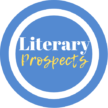The editors of New York Times Book Review announced their 10 favorite books of 2020 this week. Here are the 10 titles that made the cut.

Hamnet by Maggie O’Farrell
From the publisher: A luminous portrait of a marriage, a shattering evocation of a family ravaged by grief and loss, and a tender and unforgettable re-imagining of a boy whose life has been all but forgotten, and whose name was given to one of the most celebrated plays of all time, Hamnet is mesmerizing, seductive, impossible to put down–a magnificent leap forward from one of our most gifted novelists.

Deacon King Kong by James McBride
From the publisher: Bringing to these pages both his masterly storytelling skills and his abiding faith in humanity, James McBride has written a novel every bit as involving as The Good Lord Bird and as emotionally honest as The Color of Water. Told with insight and wit, Deacon King Kong demonstrates that love and faith live in all of us.

A Promised Land by Barack Obama
From the publisher: This beautifully written and powerful book captures Barack Obama’s conviction that democracy is not a gift from on high but something founded on empathy and common understanding and built together, day by day.

War: How Conflict Shaped Us by Margaret MacMillan
From the publisher: Drawing on lessons from wars throughout the past, from classical history to the present day, MacMillan reveals the many faces of war–the way it has determined our past, our future, our views of the world, and our very conception of ourselves.

A Children’s Bible by Lydia Millet
From the publisher: Pulitzer Prize finalist Lydia Millet’s sublime new novel–her first since the National Book Award long-listed Sweet Lamb of Heaven–follows a group of twelve eerily mature children on a forced vacation with their families at a sprawling lakeside mansion… A Children’s Bible is a prophetic, heartbreaking story of generational divide–and a haunting vision of what awaits us on the far side of Revelation.

Homeland Elegies by Ayad Akhtar
From the publisher: A deeply personal work about identity and belonging in a nation coming apart at the seams, Homeland Elegies blends fact and fiction to tell an epic story of longing and dispossession in the world that 9/11 made. Part family drama, part social essay, part picaresque novel, at its heart it is the story of a father, a son, and the country they both call home.

Uncanny Valley by Anna Wiener
From the publisher: Part coming-of-age-story, part portrait of an already-bygone era, Anna Wiener’s memoir is a rare first-person glimpse into high-flying, reckless startup culture at a time of unchecked ambition, unregulated surveillance, wild fortune, and accelerating political power. With wit, candor, and heart, Anna deftly charts the tech industry’s shift from self-appointed world savior to democracy-endangering liability, alongside a personal narrative of aspiration, ambivalence, and disillusionment.

Hidden Valley Road: Inside the Mind of an American Family by Robert Kolker
From the publisher: The heartrending story of a midcentury American family with twelve children, six of them diagnosed with schizophrenia, that became science’s great hope in the quest to understand the disease… With clarity and compassion, bestselling and award-winning author Robert Kolker uncovers one family’s unforgettable legacy of suffering, love, and hope.

The Vanishing Half by Brit Bennett
From the publisher: Weaving together multiple strands and generations, Brit Bennett produces a story that is at once a riveting, emotional family story and a brilliant exploration of the American history of passing. Looking well beyond issues of race, The Vanishing Half considers the lasting influence of the past as it shapes a person’s decisions, desires, and expectations.

Shakespeare in a Divided America: What His Plays Tell Us About Our Past and Future by James Shapiro
Deeply researched, and timely, Shakespeare in a Divided America reveals how no writer has been more closely embraced by Americans, or has shed more light on the hot-button issues in our history. Indeed, it is by better understanding Shakespeare’s role in American life, Shapiro argues, that we might begin to mend our bitterly divided land.

